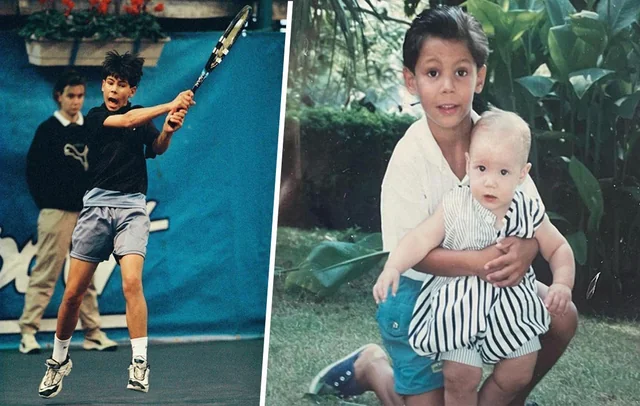
Rafael Nadal is known worldwide for his relentless work ethic, unparalleled focus, and sheer determination on the tennis court. But long before he became the champion we admire today, Nadal, like many teenagers, had his share of bad habits that threatened to derail his promising career.
Growing up in the small town of Manacor on the island of Mallorca, young Rafa was naturally gifted but also notoriously stubborn. His intense love for sports, particularly tennis and football, often led to some youthful indiscretions that worried his family and coaches.
1. Reluctance to Rest:
One of Nadal’s most persistent bad habits as a youth was his refusal to take rest seriously. Despite his uncle and coach, Toni Nadal, emphasizing the importance of recovery, Rafa had a relentless drive that made it difficult for him to slow down. He would often sneak extra training sessions, pushing his body to the limit. This relentless approach, while admirable, led to overexertion and increased the risk of injury, something that became a recurring theme in his early career.
2. Impatience on the Court:
Nadal’s competitive nature meant he was always eager to win, but as a youngster, this sometimes manifested as impatience on the court. If a match wasn’t going his way, Rafa would become frustrated, leading to unforced errors and reckless play. His fiery temperament, while a sign of his passion, needed to be tempered to harness his true potential.
3. A Taste for Fast Food:
Like many teenagers, Nadal had a weakness for fast food. Burgers, pizzas, and sugary snacks were a regular part of his diet, much to the dismay of his uncle Toni. This habit was particularly concerning as it directly impacted his fitness levels, a crucial component of his game. Recognizing the need for a healthier lifestyle, his team worked hard to instill better eating habits, emphasizing the importance of a balanced diet to fuel his grueling training sessions.
4. Disregard for Injury Prevention:
In his youth, Nadal had a tendency to ignore the early signs of injury. His determination to keep playing, even when in pain, was seen as a badge of honor. However, this disregard for injury prevention led to chronic issues, particularly with his knees, which have plagued him throughout his career. Learning to listen to his body and prioritizing long-term health over short-term gains was a lesson Rafa had to learn the hard way.
5. Overreliance on Raw Talent:
Nadal’s natural ability on the tennis court was evident from a young age, and this raw talent often led him to rely less on strategy and more on sheer power and athleticism. While this worked against lesser opponents, it was not a sustainable approach against top-tier competition. As he matured, Rafa realized the importance of developing a more nuanced game, incorporating strategy, and honing his mental toughness to complement his physical skills.
Rafael Nadal’s journey from a talented but flawed youth to one of the greatest tennis players of all time is a testament to his ability to learn from his mistakes. The bad habits that once threatened his career became valuable lessons, shaping the disciplined, focused, and resilient athlete we see today. His story serves as an inspiration, proving that with the right guidance and determination, youthful struggles can be transformed into strengths that fuel future success.
Leave a Reply